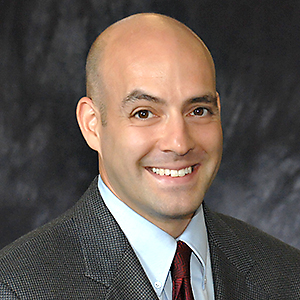The ICC's Cooperation with National Prosecutors
Last week, the ICC's Office of the Prosecutor (OTP) released a new policy paper on how it selects and prioritizes cases. The report generated plenty of media attention, largely because of its references to the environmental impact of crimes.
Published by The Lawfare Institute
in Cooperation With

Last week, the ICC's Office of the Prosecutor (OTP) released a new policy paper on how it selects and prioritizes cases. The report generated plenty of media attention, largely because of its references to the environmental impact of crimes. Many of the media accounts were overheated and implied incorrectly that the prosecutor has the power to add new crimes to the Rome Statute (something only the ICC member states can do). But the report was quite notable in at least one respect: It discussed active cooperation between the OTP and national prosecutors to bring cases under national law, including for arms trafficking, land grabs, and financial crimes. As former OTP official Alex Whiting pointed out to me, this report is not the first time the OTP has talked about this kind of collaboration. The office's most recent strategic plan describes a series of potential mechanisms for enhancing cooperation between international and national prosecutors. That idea has now made its way into an OTP policy paper on how to prioritize cases.
How much does this matter? In one sense, expanded cooperation with national prosecutors fits quite well into the Rome Statute's complementarity scheme. The Rome Statute specifically envisions a court of last resort that should yield whenever possible to functioning national judicial systems. But there are several different notions of how complementarity should work. In a minimalist version, complementarity is simply a hurdle that the ICC must clear before launching its own prosecutions. The OTP could simply assess whether national judiciaries are doing their job and intervene if they are not (assuming other jurisdictional and admissibility thresholds are met). In this approach, contacts between the OTP and national judiciaries are limited, and the prosecutor is mainly serving as a detached referee of whether national justice is addressing the criminality of concern to the ICC.
The OTP has long favored a more full-bodied version of complementarity--often labeled "positive complementarity"--that involves active consultation between the OTP and national judicial systems. In this version, the ICC is not simply assessing national competence but actively encouraging, prodding, and advising national prosecutors on how to do their jobs. (The OTP has sometimes identified Colombia—where prosecution officials have visited frequently to assess national procedings—as an example of effective positive complementarity.) The language in the latest report adopts this vision, but it seems to me that it goes several steps farther, and in some potentially troubling ways.
The report seems to envision the prosecutor helping national prosecutors pursue criminal cases involving activities that are not criminal under the Rome Statute. That's an important leap, and it's not obviously an appropriate role for an international court with a carefully negotiated and very limited mandate. The prospect of close coordination between national prosecutors and the ICC also raises questions about confidentiality and the protection of information provided to the court. More broadly, close ICC links with national prosecutors may enmesh the court with national judiciaries that are not adequately independent or professional. Most countries in which the ICC is involved are either experiencing or have recently emerged from civil conflict. Their judicial systems are often politicized and sometimes dysfunctional. Does the ICC really want to be in the business of helping their prosecutors bring cases? How will the OTP assess whether national prosecutions serve an invidious political or ideological agenda? And once the OTP begins helping national prosecutions, how can it in a principled way agree to help in some circumstances but not in others? Finally, there is the question of whether this role is an appropriate use of the ICC's own (quite limited) resources. As the prosecutor has pointed out repeatedly, the office does not have the resources it needs to aggressively pursue all the situations it is investigating. Does the OTP really have the means to be serving as a roving consultant to national prosecutors?





